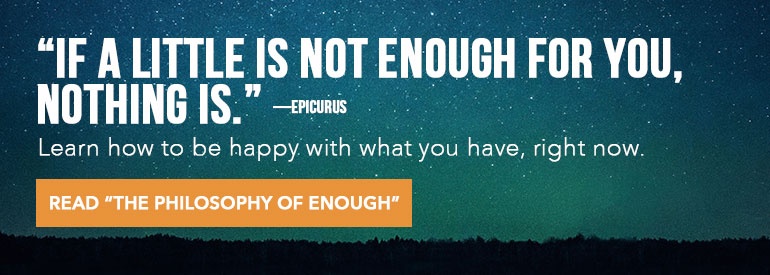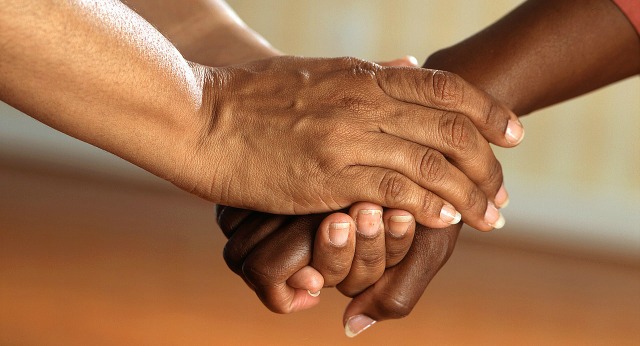 Reading Time: 6 minutes
Reading Time: 6 minutesThink of the last time a friend went through a difficult situation. Maybe he or she made a mistake, failed, or experienced a setback. More than likely, you empathized with his or her struggles, and then offered reassurance, support, and help to overcome the situation.
Now think of the last time you experienced a setback or made a mistake.
Were you supportive of yourself? Did you offer yourself warmth, reassurance, understanding, and help?
Or did you berate yourself with self-criticism, feel ashamed and embarrassed by your shortcomings, judge yourself as a failure, and mentally beat yourself up?
If you’re like most people, you responded with self-criticism. This is normal, and stems from the belief that, by pointing out what we did wrong, we’ll do better next time. So, we reprimand, chastise, and judge ourselves with phrases like “I’m such an idiot,” “Ugh, I can’t believe I did that,” “This always happens to me,” or “I can’t do anything right.”
We believe that being mean to ourselves will make us change.
Let’s consider the differences between these two approaches.
On the one hand, we have warm compassion toward others when things go wrong. We understand that they’re human, accept they made a mistake, and help them through the situation so they learn from it and move forward.
On the other hand, we have harsh self-criticism toward ourselves. We don’t accept our mistakes. We think we should have known better. We get stuck in a loop: berating ourselves with threats, blame, and demands while insisting it must never happen again.
While we instinctively know that being compassionate is the best way to help others, we assume — incorrectly — that it’s an ineffective motivator for ourselves.
We tend to believe that self-compassion is weak, selfish, and indulgent. That it lets us off the hook and justifies our mistakes. We think if we’re self-compassionate, we’ll become lazy, continuously fail, and under-achieve.
But what if I told you self-compassion is the key to a better life?
That, by using self-compassion as a tool to overcome setbacks, you’ll be more resilient, have a greater sense of responsibility toward yourself and others, experience sustainable growth, be wiser and more generous, have higher self-worth, and achieve healthier and more positive outcomes in life?
Sounds good to me.
But, given that we’ve spent much of our life self-criticizing, how do we turn it around? Like anything worth doing, it will require patience, practice, and persistence. The next time self-criticism rears its ugly head, try these strategies instead.
1. The 3-Step Approach
This simple approach is based on mindfulness and uses the concepts of awareness, acceptance, and understanding to stimulate self-compassion. While the process sounds simple enough, the old habit of self-criticism will probably try to reassert itself at each step. This is normal and will lessen over time.
If you make a mistake, or things don’t go to plan, follow this three-step process to practice self-compassion:
- Step 1: Pause and notice if you’re feeling annoyed, frustrated, or upset with yourself. Try not to judge those feelings. Simply pause, be patient with yourself and be aware of what you’re feeling.
- Step 2: Tell yourself that it’s okay to feel this way. Accept that making mistakes is a normal part of life and you’re not alone — other people have gone through this situation.
- Step 3: Ask yourself, “What would I say to a friend in this situation?” Write those things down. Now, redirect those words to yourself. What do you need right now? How can you help yourself? What can you learn from this situation?
2. The Power of Touch
Touch is incredibly powerful. It can bring us back to the present moment and induce calm. It’s why we intuitively want to hug or touch friends when we hear of their bad news. Touch also stimulates the release of oxytocin, a brain hormone that makes us feel more connected, soothed, and less stressed.
The next time you catch yourself slipping into self-judgment, try holding your own forearm or hand. It can also help to place a hand on your belly, lay your palms on your thighs, or fold your arms across your chest. Notice what feels best for you, and if it makes you feel calmer or more at ease.
3. Practice Daily
Self-compassion works best when it becomes an automatic habit (and replaces the default habit of self-criticism). To build the new habit, try practicing self-compassionate activities daily.
These activities can include: moving and exercising regularly, eating nourishing food, relaxing in a bath, sitting outdoors, meditating, spending time with your kids, reading, painting, writing, listening to music, going for a walk, or playing with a pet.
If you struggle to create time for self-compassion, then consider making an appointment with yourself. Schedule self-care into your calendar like you would schedule someone else.
4. Take It Slow
Being self-compassionate takes practice. At first, it will feel uncomfortable and awkward. You might feel self-conscious. You might feel resistance. It’s very normal to think, “This is stupid,” or to be dismissive and annoyed toward using self-compassion.
The key here is to go slowly. Be kind to yourself, be aware of what your mind is telling you, and recognize that being self-compassionate will feel foreign at first. Over time, it will feel more natural.
Start with Self-Compassion Where You Are
The best place to start with self-compassion is at the beginning. Happily, you’ve already taken the first step – you’ve come to the Whole Life Challenge.
By being here, you’ve recognized that you want to change your life in a positive and healthy way, you’ve enlisted the support and resources to do so, and you’re ready to learn how to make sustainable change.
As you progress on this path, there will be challenges. You’ll learn where your biggest struggles lie as you develop better relationships with your food, movement, body, and mind. This can feel uncomfortable at times. It might even be confronting, particularly if your biggest struggles lie within.
It’s normal to feel uncomfortable during this process. You’re changing habits and challenging beliefs. You’re changing how you feel about yourself and others. This stuff can be hard.
Along the way, you might get discouraged. You might make a mistake and slip up. You might want to give up, reject change, and chastise yourself. The inner voice might tell you a story that you’re not good enough, you always mess up, and you’ll never be healthy.
Self-compassion is about changing that story. It’s not just you, it’s not always, it’s not forever. The key to thriving during this process – and life beyond it – is to treat yourself with respect and empathy. Understand that it takes courage and bravery to change.
If things go wrong, practice a little self-kindness:
- Accept that you’re imperfect (we all are).
- Accept that you might slip up (we all do).
- Accept that you’re doing the best you can with the intention of becoming a healthier, happier, and more fulfilled person.
Resist the urge to get stuck in a loop of self-criticism and self-judgment, and reject the belief that punishment will make you change. Instead, build the habit of self-compassion to create a happier, brighter, and more engaged life.











